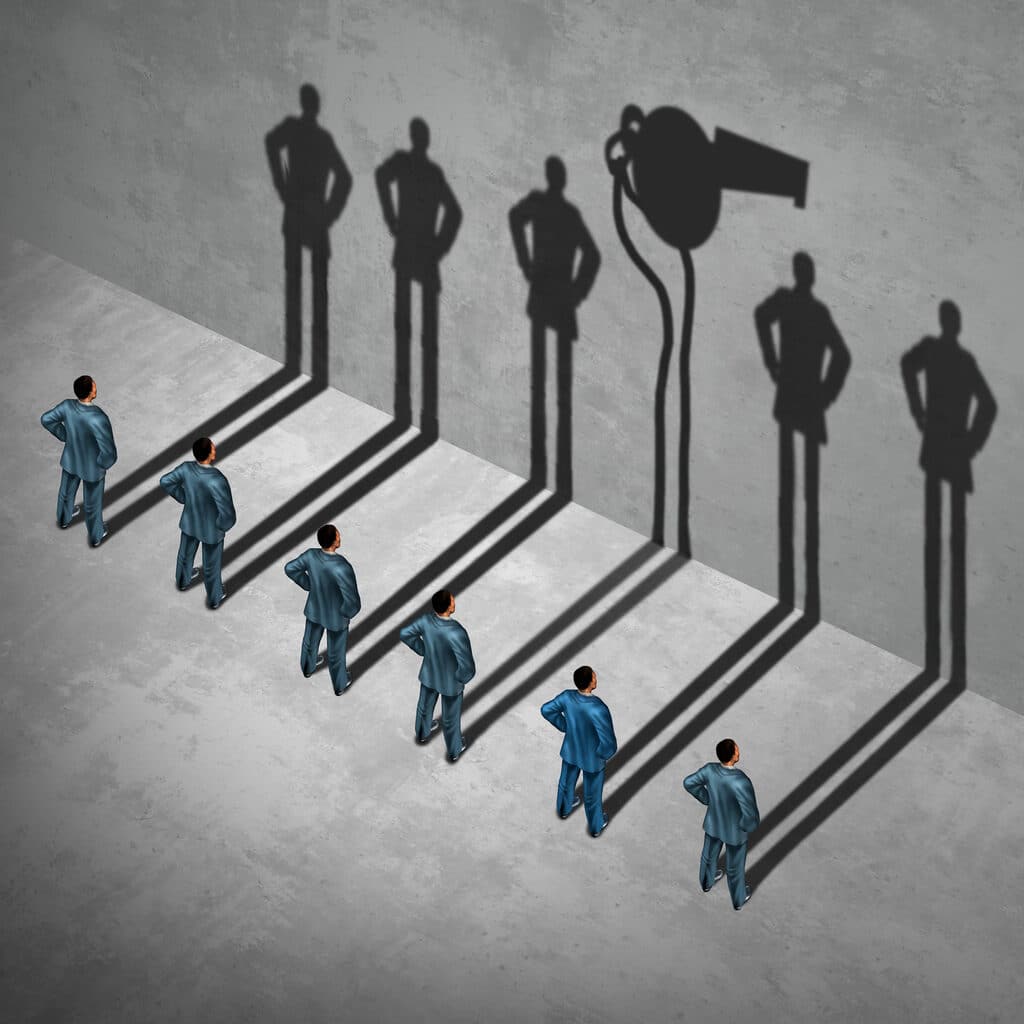Now that whistleblowing has become an everyday happening, more attention is turning to figuring out why only some people speak up while most others don’t.
Amherst College psychology Professor Catherine Sanderson began delving into the question after a tragedy that occurred at her son’s university. For nearly 20 hours, a group of students stood over a drunken student who had fallen and hit his head. By the time someone called for help, it was too late. Why did this group of people remain idle and watch their friend die?
Sanderson says part of the answer lies in the physical processes that naturally govern how our brain works. In her recent book The Bystander Effect: Understanding the Psychology of Courage and Inaction, Sanderson explains that human physiology itself is at least partly to blame.
In an interview with Amelia Tait of The Guardian, Sanderson says that interacting with other people reduces our feeling of control. Remarkably, as the number of people involved with a situation increases, the parts of our brain that help us respond to events actually start to shut down. “Many of the processes that drive inaction occur not through a careful deliberative process, but at an automatic level in the brain,” she said.
Our neurological systems are so firmly biased against whistleblower-type behavior, says Sanderson, that taking action can cause feelings of rejection so intense that they can feel like physical pain. This is especially strong among people who are particularly worried about fitting in and fear being ostracized.
It is little wonder that individual employees – especially those who work in large companies or organizations – say nothing when they witness crime or corruption. Sanderson estimates only 5-10 percent of people have the capacity to overcome social pressures and be “moral rebels”: people who have a high level of self esteem and a strong belief that their actions will make a difference in the world.
Sanderson’s findings also help explain the retaliation and rejection that whistleblowers experience in a vast majority of cases. Their behavior simply doesn’t compute, and even family members and close friends cannot comprehend doing the same thing. They cannot understand why someone would blow the whistle because their brains tell them it’s not normal.
Through her research, Sanderson found that people often believe they would take swift action when presented with the opportunity. In their private thoughts, people may tell themselves they would stand up and do the right thing. When a real-life opportunity actually arrives, however, most people remain bystanders because of a phenomenon called “deindividuation.”
Tait asked Sanderson whether people can be “re-individualized” so we can do what we consciously think is right for us – even if it means going against our own instincts. Encouragingly, Sanderson answers affirmatively: “My hope is that reading this book will help people understand that they have a choice. Neuroscience lets us be aware of our pre-existing unconscious biases. It gives us the power to say: ‘This is normal and it’s natural, but I still have some agency and I can act.’”
